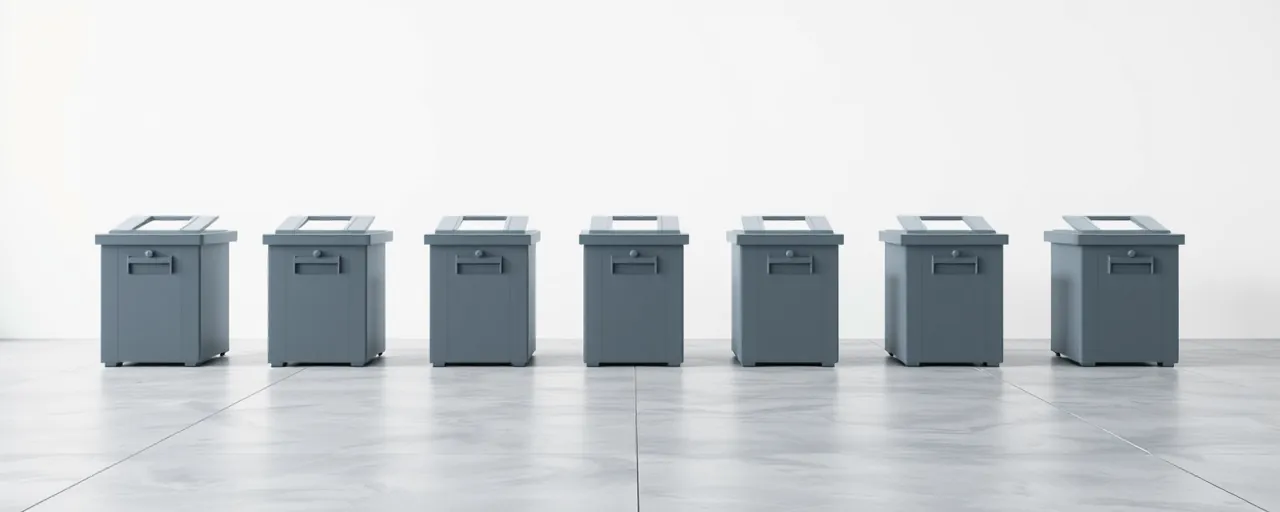Elections at a Crossroads
The Supreme Court’s agreement to hear a Republican challenge to Illinois’ law counting mail ballots up to two weeks after Election Day marks a critical juncture for American elections. Known as Bost v. Illinois, this case tests whether our voting system can inspire confidence or continue fueling doubt. Lax rules have long sown skepticism among voters. The time has come for clear, consistent standards to protect the integrity of our democracy.
Illinois allows ballots postmarked by Election Day to arrive as late as November 19, extending the process far beyond the polls’ close. Proponents argue this boosts access, but the cost is steep. Delayed results, public confusion, and whispers of fraud erode trust in the system. When voters question whether their voice counts, the very foundation of our republic falters. Can we afford rules that invite such uncertainty?
President Trump’s March 25, 2025, executive order, which calls for proof-of-citizenship in voter registration and unified Election Day deadlines, signals a broader push for accountability. Illinois’ extended deadline clashes with this vision. A patchwork of state rules risks unequal treatment of voters, where outcomes hinge on geography rather than principle. Democracy demands better.
The stakes are high. Since the 2000 Bush v. Gore recount exposed flaws in inconsistent election laws, public faith has wavered. Today’s polarized climate, with 83 percent of local leaders in 2025 citing national distrust as a problem, only deepens the urgency. Uniform rules aren’t a luxury; they’re a necessity for fairness.
Bost v. Illinois offers the Supreme Court a chance to restore clarity. If the plaintiffs prove their standing, the court can strike down a law that undermines the equal weight of every vote. This isn’t about restricting access; it’s about ensuring elections reflect the will of the people, without delay or doubt.
The Case for Uniform Rules
Elections thrive on precision and fairness. Federal law, through 2 U.S.C. § 7 and 3 U.S.C. § 1, designates a single Election Day to guarantee votes are cast and counted under shared standards. Illinois’ 14-day window for late ballots defies this logic. It allows votes to arrive long after polls close, potentially altering results and prolonging uncertainty.
Supporters of the SAVE Act and conservative election experts advocate for voter-verifiable paper records and firm deadlines to strengthen public trust. History backs their reasoning. The 2000 Florida recount revealed how inconsistent rules spark chaos and litigation. Since 2020, 29 states, including Florida and Texas, have enacted stricter measures like photo ID and citizenship verification, responding to voters’ demand for security.
By contrast, the 18 states permitting late ballots, Illinois among them, risk fueling skepticism. A 2025 survey noted that nearly 40 percent of larger communities report local distrust in elections. When ballots trickle in weeks later, voters naturally question the process. Clear deadlines don’t limit voting; they safeguard its legitimacy.
Debunking the Access Argument
Democratic attorneys general and voting-rights advocates defend Illinois’ law, claiming it protects military personnel, disabled individuals, and low-income voters facing postal delays. This argument carries emotional weight but falters under scrutiny. Mail voting shows minimal fraud, they assert, yet even rare cases ignite public doubt. Why gamble with confidence in our elections?
These advocates also criticize Trump’s executive order for imposing unfunded mandates, yet their push for flexible deadlines creates its own chaos. States like New York have expanded voting with universal mail options and same-day registration, but turnout gaps remain. Extended deadlines don’t solve access issues; they complicate administration and invite lawsuits. Voters need straightforward rules, not bureaucratic hurdles.
The Supreme Court’s precedent, from Marbury v. Madison to Moore v. Harper, supports judicial oversight of election laws that stray from fairness. Illinois’ policy doesn’t expand inclusion; it risks diluting the votes of those who meet deadlines. Every voter deserves equal treatment, not special exceptions that breed mistrust.
Restoring Faith in Voting
The Bost v. Illinois case gives the Supreme Court an opportunity to uphold election integrity. If the plaintiffs have standing, the court should reject Illinois’ law and affirm that uniform standards are non-negotiable. The Constitution’s Elections Clause empowers Congress to set consistent rules, and states must comply.
Voters want elections they can trust. States like Florida and Texas have strengthened public confidence with paper audits and citizenship checks since 2020. Illinois’ approach, however, sows division and doubt. The Supreme Court must act to ensure every vote is counted fairly and promptly.
As the nation watches, Americans deserve elections that are secure, transparent, and equitable. Late-arriving ballots undermine this goal. By enforcing clear deadlines, we can rebuild trust in our democracy, vote by vote.
